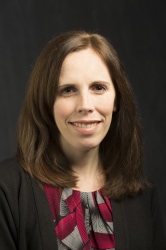Today’s students are preparing to be contributing citizens in an increasingly connected, complex, and global society. They encounter rapid growth in the areas of technology and innovation. Reports by Cisco and the Center for Digital Education and Battelle for Kids describe four key skills students need to develop to be successful.
These four skills, or the “4 Cs” of 21st century learning, are: communication, collaboration, creativity, and critical thinking.
- Communication skills help students share their ideas, thoughts, and solutions in cooperative and constructive ways.
- Collaboration helps students work together to reach goals. It creates a culture of growth and teamwork.
- Creativity enables students to find new ways of doing things and encourages them to be innovative.
- Critical thinking empowers students to look at problems differently, explore new solutions, and integrate learning across subject areas.
Teachers can design rich learning environments where these four skills are cultivated. In this series, we will explore accessible and cost-free Adventist resources that can facilitate connections and collaboration.
To get started, here are five ways teachers can create meaningful, real-world learning experiences for their students.
- Incorporate Project-Based Learning (PBL): Project-based learning engages students in authentic challenges that require them to apply their knowledge and skills to solve real-world problems. These projects can address local community needs or broader issues. For example, students can create sustainable solutions for an environmental issue in their neighborhood or develop a business plan for an entrepreneurial venture. PBL encourages collaboration, communication, critical thinking, and creativity while applying academic content to real situations.
- Connect with community partners: Create partnerships with local businesses, non-profit organizations, and professionals to provide students with first-hand experiences in real-world settings. For example, invite guest speakers to share their expertise, consider mentorship opportunities, or arrange field trips to relevant workplaces. These interactions expose students to diverse career paths and help them understand the practical applications of their learning.
- Create experiential learning activities: Engage students in hands-on, immersive experiences aligned to the curriculum. These can include science experiments, STEM activities, simulations, historical reenactments, and role-playing. Experiential learning fosters curiosity, inquiry, exploration, and a deeper understanding of the subject matter.
- Engage in service-learning projects: Similar to PBL, service-learning empowers students to address real community needs while offering a direct service to others. Collaborate with local church ministries such as Adventist Community Services to identify service opportunities relevant to the curriculum. For example, students can organize food drives, volunteer at nursing homes, or participate in environmental clean-up efforts. Through service-learning, students develop empathy, civic responsibility, and a sense of purpose while making significant contributions to their community.
- Embrace technology and virtual experiences: Use technology to create experiences such as virtual field trips, interactive simulations, and online collaborations. Connect with like-minded teachers and organize cross-cultural exchanges with other classrooms. Virtual experiences promote empathy, global citizenship, and cultural competence. They prepare students for success in an increasingly digital world.
When planning learning experiences for your students, consider projects that address real-world challenges and foster choice, student voice, collaboration, communication, creativity, and critical thinking. By facilitating dynamic learning experiences like these, students will not only master academic content but will develop the skills they need to thrive in an increasingly connected and global world.

